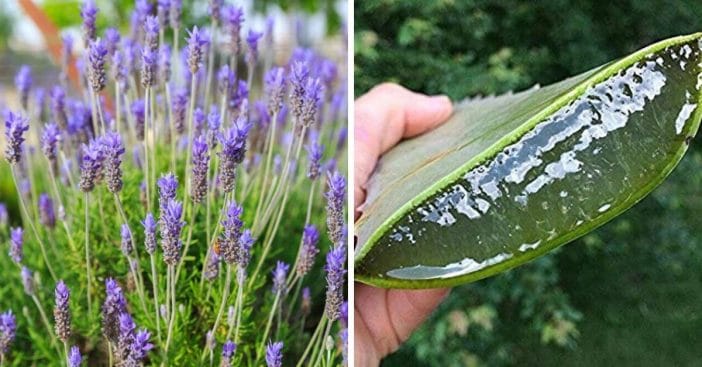
Our sense of smell is fascinating. The effects of various aromas is equally so. Scientifically speaking, there is a strong connection between scent and memory. That is because scents are processed by the limbic system, which is responsible for memory and emotion. Additionally, scents affect our mood. According to Aroma Tech, the nose can shape 75% of our daily emotions. Fragrances may even help us find a significant other with whom to start a relationship.
The scientific basis behind an odor’s power is strong. Chefs consider scent textures to get just the right experience when eating their food. Designers want to fill the air with thoughts of sweeping romance and eternal love at wedding receptions. Different chemicals act on the brain in unique ways, all resulting in some very healthy benefits for us. To get the most out of these perks, let’s explore some healthy houseplants you should surround yourself with at home.
When the day is done, look no further than lavender

A long day can be hard to get through. But settling down for rest can be just as trying. All that built-up tension stays with a person and can make for a really restless evening. Lingering worries – even headaches – can keep a person up.
RELATED: Husband Spends Two Years Planting Thousands Of Flowers For His Blind Wife
Fortunately, lavender helps ease that tension. Lavender is popularly sold in small satchels. This allows the healthy houseplant to be contained and let out its beneficial fragrance. Lavender eases headaches. Additionally, it soothes stress and eases anxiety. But why? Linalool is an alcohol present in essential oils of lavender. Reportedly, this helps direct signals in the brain without being consumed traditionally, but instead by scent.
When the heat hits, no houseplant is quite as healthy for the skin as aloe vera
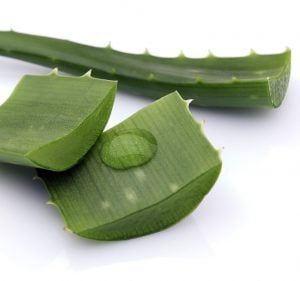
Every household probably does – or should – have aloe vera around in some form or another. This has long established itself as a favorite among sunburn victims. But it can help with many other skin conditions too.
The sun isn’t the only thing with a searing bite. Frostbite can have horrible consequences, but aloe vera is used as a treatment for frostbite. When the situation is less dire, it can also help moisturize dry skin, which saves you a lot of grief in the long run. Once dry skin builds up momentum and cracks, every movement can hurt. As a healthy houseplant that’s good to have on hand, aloe vera is also used to treat psoriasis and cold sores.
Whatever the salt rocks and filters don’t catch, rubber plants will

Actual rubber is all around us and has more uses than we can count. It gets us from place to place and erases our mistakes. It can also get rid of pesky airborne particles we don’t want whirling around our houses. Homeowners consistently turn to manmade and organic filters to help in the fight against dirt. Himalayan salt lamps lessen dampness that could house mold, for example.
Rubber plants provide an equally easy, natural way to filter out the house. They do get big, but dusting off the leaves is the only real maintenance step, besides providing food and water. The payoff is worth it, though, as you get a beautiful houseplant that’s also healthy. It is particularly good at getting rid of formaldehyde, though ultimately is great in general at absorbing toxins tainting the air.
Azaleas prove houseplants can be healthy and beautiful
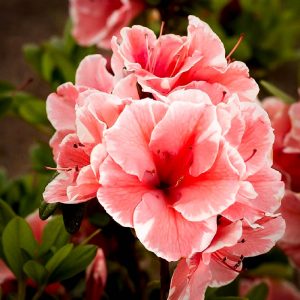
Maybe don’t keep these near the salt rock lamp. It will be worth having azaleas in your home, especially considering all the sources of undesirable air impurities. This flowering shrub can get rid of formaldehyde, which can taint your home from plywood and foam insulation. It’s an inevitable downside to owning a home, but it’s easy to counter it with the right houseplants keeping your home healthy.
Fittingly, azaleas like damp environments, which is right where you want them working the most anyway. Basements are particularly prone to inadequate air quality, so plop some azaleas down there to add bursts of color and clean your air at the same time.
Or, if you need the opposite, add a Boston fern to your home
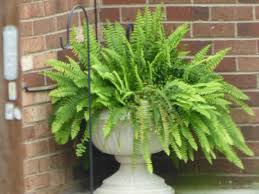
Sometimes, you don’t need to remove dampness and the like from your home. Sometimes, you actually need some humidity so the whole place isn’t one dry, staticky zap mat. Fortunately, there’s a beautiful, unique houseplant for that too: the Boston fern.
But don’t worry about having to make a tradeoff. The Boston fern still performs the same tasks as other plants such as rubber plants. It combats formaldehyde and other toxins. In this case, the only difference is that the Boston fern is also regarded as a reliable natural humidifier. Thankfully, they’re also easy to maintain, which is a relief. Those leaves look a bit harder to clean than the rubber plants!
Bromeliads keep it simple and keep it healthy while we rest
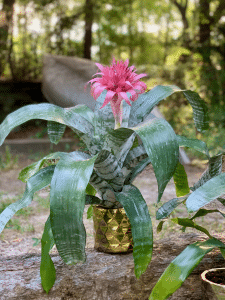
Just about everything in nature has a Circadian rhythm. Humans have a sleep cycle, bears have routines for winter, and so on. Plants are very much included in this list too. Their routines are attached to the presence and absence of light. Different lighting means different activity. A flower does not need to be open to get sunlight if it’s nighttime.
So, when choosing a healthy houseplant to keep your home well, the bromeliad is a very healthy choice. While many plants retire for the night, this plant does all its work in the dark. If you have bromeliads and foliage plants, you’ll have an all-natural, 24/7 air purification system. And they’ll look amazing doing it!
Thanks to Golden pothos, you don’t have to feel guilty while you use those chemicals
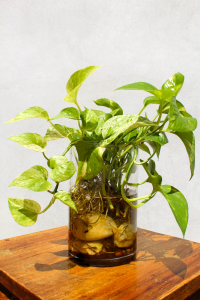
It’s always important to exercise caution when using anything particularly harsh. Get access to fresh air when painting a room, don’t breathe in strong cleaners, and so on. But some houseplants can keep the air just a bit healthier so the lesser – but still strong – stuff isn’t as much of a threat.
Golden pothos does this job well. Any time you use glue, paint, and detergent, you’re being exposed to trichloromethyl in the air. But, thankfully, golden pothos is an expert at addressing this. It’s also a very resilient plant, so new gardeners won’t have to worry about killing it.
Rosemary is a plant of many uses

Already, we know of a connection between the brain and nose. Anatomically, their processes occur in close proximity – even in the same place/system. So, it makes sense that rosemary helps with both memory and concentration just by its fragrance.
It does so by preventing the breakdown of acetylcholine, which is a chemical in the brain important in memory and concentration. So when you need help focusing, have some rosemary nearby. And when you’re done, you can add it to a meal!
Read onto the NEXT page for more healthy houseplants and benefits…
